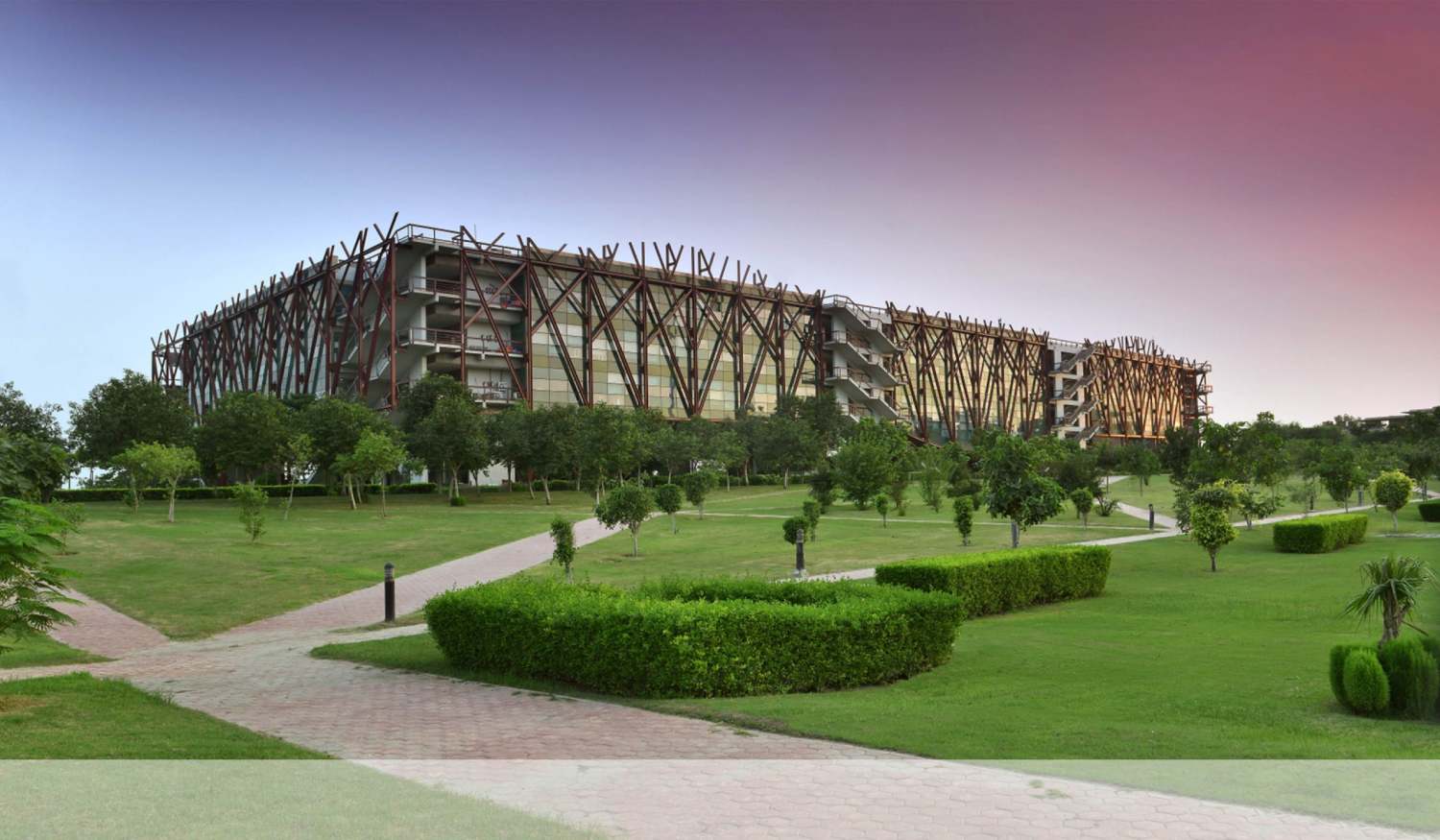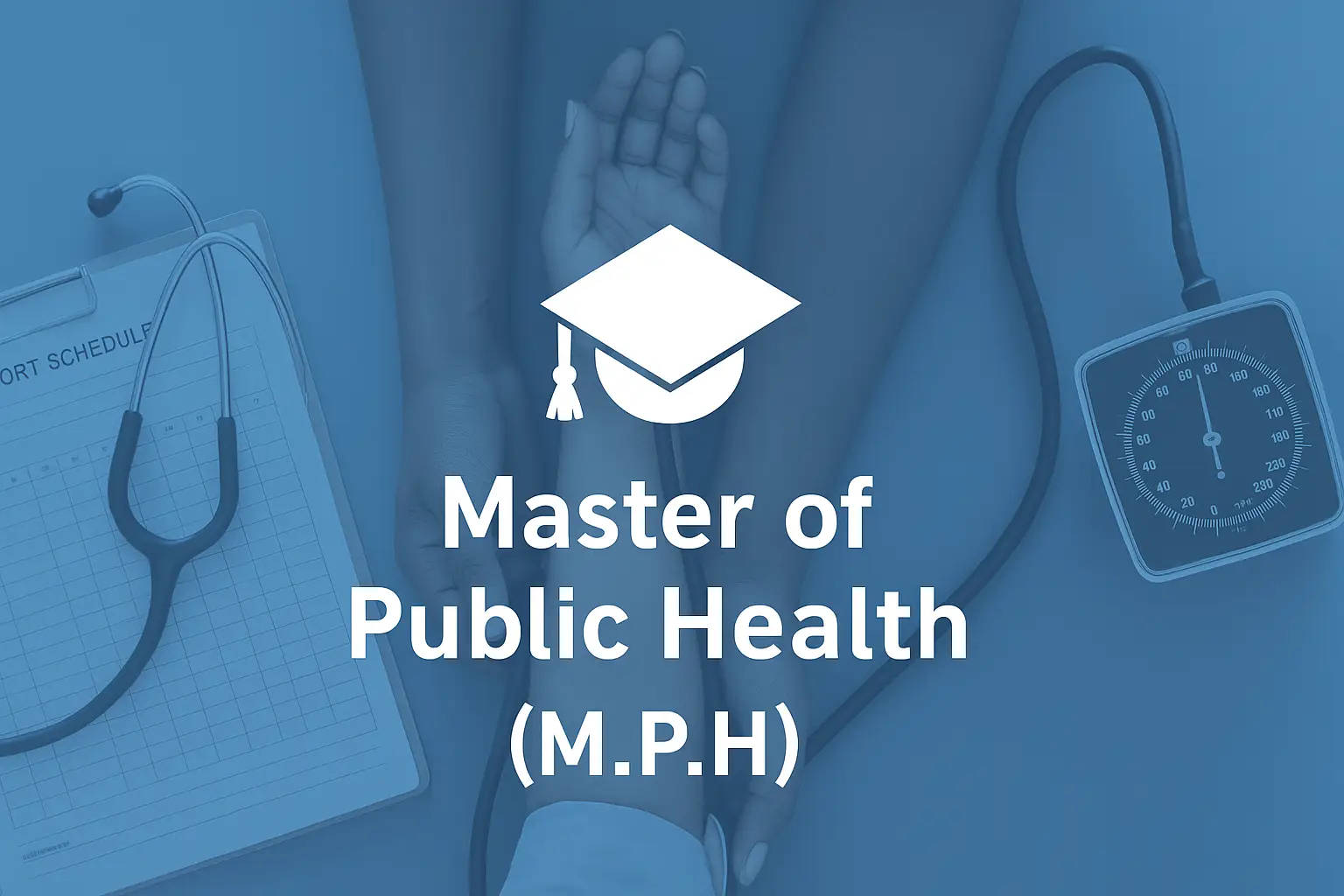The topic of public health is a well-discussed matter that has a significant impact on the general public. Usually, the government, non-governmental medical institutions and even private medical centres are the primary parties responsible for ensuring public health safety and implementing policies that benefit the community to stay healthy. A public health course prepares you in ways which are essential for bridging the gap between the healthcare system and the general public.
About the Public Health Course
The courses for public health studies offered at different universities in India follow a similar pattern. A public health master’s programme focuses on specialised subjects related to public health programme. Different institutions have different eligibility criteria and selection processes, and many don’t require any sort of medical background to pursue a master’s programme in public health. The medical background is only asked to ensure the applicant has prior knowledge of the subjects they will be covering throughout the core and elective subjects.
The idea of Public health goes across many topics like Social Sciences, Environmental Health, Community Health, Mental Health, Biostatistics, Epidemiology, Public Policy, Health Economics, Health Education, Health Politics, etc. A master’s in public health degree enables you to find work in public offices and healthcare fields.
Public Health Courses in India
In India, any student from any stream, medical or non-medical, can apply for the master’s programme in Public Health. Jindal School of Public Health & Human Development (JSPH) is one of the leading universities for Public Health studies.
JSPH also provides an opportunity to pursue doctoral or P.hD courses in Public Health for students who want to be academically empowered in the field. The interdisciplinary curriculum, coupled with a research-led module, allows students to learn about the discipline from multiple angles and develop a critical opinion about the whole.
The course is also focused on developing skills such as Analysis and Assessment, Good Communication & Counterstrategies, Financial Planning & Management, Leadership, and Planning & Developing Policies addressing real-life issues.
Difference Between MPH, MS, & MHA
Master’s of Public Health, Master’s of Science, and Master’s of Health Administration are all related academic programmes in public healthcare; however, they have different approaches and perspectives to reach a similar goal of improving medical services and healthcare opportunities for the general public.
Master’s In Public Health (MPH): A master in Public Health course is for building a career as a public health practitioner, health educator, health administrator, public policy coordinator, clinical dietician, research coordinator, environment health scientist, substance abuse counsellor, community outreach coordinator, and health engagement marketing manager.
Explore Jindal School of Public Health and Human Development
Public Health and Human Development Courses

Master’s in Science (MS): Master’s in Science is all about rigorous research in areas like Environmental Health, Clinical Research, Biostatistics, Policy & Administration, and Health Service Research. The job positions associated with an MS degree include academic physician, biostatistician, research scientist, environmental chemist, senior research analyst, biomedical researcher, research scientist, epidemiologist, and occupational hygienist.
Master’s of Health Administration (MHA): Master’s in Health Administration is a field concerned with the functionality and profitability of healthcare institutions using leadership and management skills and tools. The job roles related to the MHA degree are director of patient safety, director of hospital operations, director of business development, chief nursing officer, chief executive officer, and practice manager.
Relevance of an MPH degree?
After the COVID-19 pandemic, there was a sudden 20% rise in interest in topics like virology, public health and epidemiology. The growing interest has led to many medical aspirants opting for the Master’s in Public Health programme with the hopes of improving the healthcare system and services for the general public.
Before the pandemic, between the time of 2015 and 2018, public health admissions increased from 14% to 26% due to an increase in interest and labour market demands in data science and health informatics. In such a scenario, a Master in Public Health course presents lucrative career opportunities to students.
The Course Content of the Public Health Master’s Programme
The public health programme at the Jindal School of Public Health & Human Development is an interdisciplinary course featuring a unique mix of core curriculum, specified choice of elective subjects, dissertations, capstone projects, community service projects, internships, etc.
The course content at JSPH is as follows:
- History of Public Health & Human Development
- Principles & Practice of Public Health
- Human Rights & Health
- Epidemiology & Biostatistics
- Health Systems
- Public Health Nutrition
- Management for Health
- Social, Behavioural & Structural Determinants of Health
- Research Methods in Public Health
- Introduction to Infectious Diseases
- Leadership and communication
- Health Policy & Practice
- Monitoring & Evaluation in Public Health
- Introduction to Chronic Diseases
JSPH also has a generous list of cross-electives for the students to choose from other schools of JGU. These elective subjects offer extra credit, and they are usually in related topics such as Human Rights & Human Development, Environmental Health, Health Systems & Policy, Mental Health, Gender, Health and Gender, Sexuality & Health, Humanitarian Relief & International Security.
Why is the Jindal School of Public Health & Human Development the Best Place to get an MPH Degree?
The Master’s in Public Health programme at JSPH provides a strong foundation in population health, along with training in both quantitative and qualitative public health methods. Elective courses allow students to explore innovations, develop specializations, and identify inter-sectoral linkages.
The Jindal School of Public Health & Human Development employs diverse teaching methods, including classroom lectures, guided interventions, simulations, media and film analysis, problem-based learning, community service, and field excursions. Students also benefit from international exchange programmes and internships that offer real-world experience across various public health domains.





